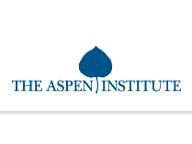Faculty News
—
Professor Jonathan Haidt weighs in on the violence at Donald Trump's political rallies
—

Excerpt from WIRED -- "'The attitude is if you violate my values, you won’t get to speak,' says Jonathan Haidt, a social psychologist at the New York University Stern School of Business. In fact, Trump has blamed supporters of Democratic presidential candidate Bernie Sanders and the liberal group MoveOn for trouble at the rallies. 'Of course they hate Trump and what he stands for,' Haidt says. 'But what gives them the right to disrupt, interrupt and shut down a political event? If they do that at a Trump rally, are they surprised that people will try to hit them?'"
Faculty News
—

Excerpt from WIRED -- "'The attitude is if you violate my values, you won’t get to speak,' says Jonathan Haidt, a social psychologist at the New York University Stern School of Business. In fact, Trump has blamed supporters of Democratic presidential candidate Bernie Sanders and the liberal group MoveOn for trouble at the rallies. 'Of course they hate Trump and what he stands for,' Haidt says. 'But what gives them the right to disrupt, interrupt and shut down a political event? If they do that at a Trump rally, are they surprised that people will try to hit them?'"



















